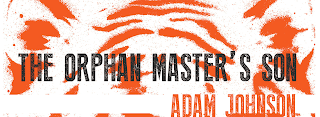I liked the story. Clarice, the protagonist, is a full time mom and housewife. She has three children, the twins Arsineh, Armineh, and her son Armen. Her husband, Artoush, is a man with strong political convictions, something Clarice openly objects. Her mother is a perfectionist, and she is not shy in pointing out to Clarice her shortcomings in being a housewife. Her sister, Alice, is her complete opposite. She thinks highly of herself, has too much self confidence, and has an opinion about anyone and anything (more often unfavorable).
 The story is almost insignificant; recounts the daily lives of Clarice's family, and her social interactions with friends and neighbor. Through out these insignificant events we meet the new neighbors, Emile, a widower, his daughter, Emily, and his mother. They add an element of enigma to the story of Clarice's life. Clarice interacts with them, almost reluctantly, and only because others wants her to do so. Ironically, this forced relationship opens Clarice up to a whole new level of self awareness. She questions her current status and wonders about the choices she has made in life.
The story is almost insignificant; recounts the daily lives of Clarice's family, and her social interactions with friends and neighbor. Through out these insignificant events we meet the new neighbors, Emile, a widower, his daughter, Emily, and his mother. They add an element of enigma to the story of Clarice's life. Clarice interacts with them, almost reluctantly, and only because others wants her to do so. Ironically, this forced relationship opens Clarice up to a whole new level of self awareness. She questions her current status and wonders about the choices she has made in life.I could empathize with Clarice. I too often find myself putting everyone else's needs ahead of mine. But, I hoped the story offered a shift, but instead, I think, it offered a middle ground, where Clarice was still the same person, doing the same things, but now, recognized [instead of taken for granted].




















